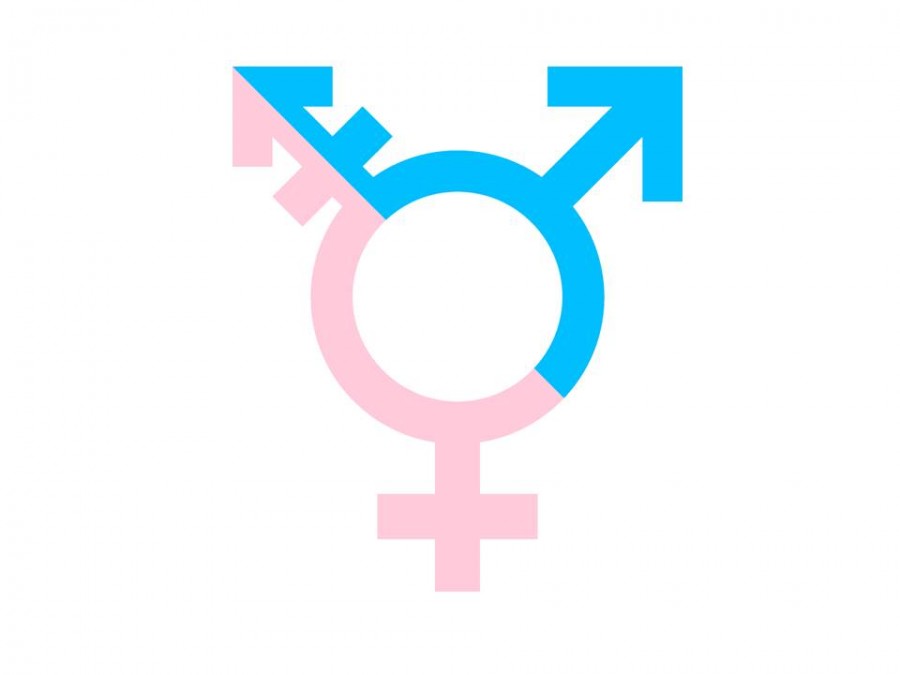Transgender visibility helps grow acceptance
IMAGE / Creator RU / Wikimedia Commons
When Vanity Fair released its latest cover, “Call me Caitlyn,” on June 1, starring the former Bruce Jenner now known as Caitlyn Jenner, it was no shock to the world.
And for one Kearsley junior, CJ Forsberg, the cover photo has a personal connection.
Forsberg, who identifies as a transgender male and was previously known as Charlotte Forsberg, said he appreciates Jenner’s transgender visibility.
“Being transgender is nothing to be ashamed of,” Forsberg said. “No matter what age you are, it’s never too late to be yourself.”
Transgender, by definition, means noting or relating to a person whose gender identity does not correspond to that person’s biological sex assigned at birth.
Although many transgenders recognize themselves for who they are as adults, many also know from a young age.
Forsberg recognized that he was transgender at 13 years old.
“I had always felt like a boy inside for my whole life, so the summer after eighth-grade year, I cut off all of my hair and started collecting boy clothes,” Forsberg said.
Forsberg admitted that he did not become publicly transgender until his sophomore year.
“Sophomore year was when I really started sticking up for my identity,” Forsberg said. “The first two people I told were my best friends, and it was a difficult thing to do.”
The transgender community is not uncommon to the world. It has many faces — young people, old people, activists, those who remain private, as well as many celebrities that are viewed by millions.
Celebrities like Isis King, a transgender woman, who starred on the 11th cycle of Tyra Banks’ “America’s Next Top Model,” along with Laverne Cox, a transgender woman who plays as Sophia Burset in the Netflix series, “Orange is the New Black.”
For Forsberg, it is exciting that society is starting to accept transgender people as a normal part of society.
In fact, a recent survey conducted by the Human Rights Campaign, which is the nation’s largest lesbian, gay, bisexual, and transgender civil rights organization, found that 22 percent of likely voters said they know or work with someone who identifies as transgender. This is up from 17 percent from the same survey just one year ago.
In addition, the favorability/unfavorability of transgender people in 2011 was 26/36, showing nine points more for unfavorability. But in the same survey this year, the poll was 44/25, which showed a net gain of 28 points in the last four years.
For Forsberg, the visibility of transgender people helps increase their acceptance.
“I’m very excited to have trans representation in the media,” Forsberg said.
Although much more accepted by today’s Millennial generation, the transgender community still faces many obstacles for acceptance.
The National Center for Transgender Equality published a national report in 2011 of the national transgender discrimination survey.
The survey said that 78 percent of transgender or gender non-conforming students in K-12 reported being harassed by students, teachers, or staff.
Forsberg shared his struggle of constantly being misgendered from his peers, meaning when people do not acknowledge him by his preferred pronouns, along with listing a few of the other struggles he has to endure daily.
“I still get constantly misgendered at school,” Forsberg said. “I also struggle with not being able to use public bathrooms and being uncomfortable everyday.”
Not only do transgender youths face obstacles from their peers, but school officials tend to single out these youths by refusing to recognize their gender identity.
Junior Kaylen Lumley, Forsberg’s girlfriend, sees the mistreatment toward the transgender youth.
“There are major steps that still need to be taken for more trans awareness,” Lumley said. “Especially in places like our school, where the faculty are severely against bullying yet allow kids to partake in misgendering that can be detrimental to a trans kid’s mental health.”
Junior Jennifer Delong, one of Forsberg’s close friends, also agrees that it is unfair that people criticize the transgender community without understanding.
“I do not think it is fair that they (transgender people) are judged on who they are and how they represent themselves,” Delong said. “When it’s clear that they (people in society) are unfamiliar in the subject of transgendered people.”
Lumley recognizes that the transgender movement is becoming more active.
“It is great that the trans movement is growing,” Lumley said. “Taking more action for awareness and educating more people about the subject is so important.”
Transgender people will always continue to face obstacles, and Forsberg has come to accept this.
“Three years ago it was difficult for me, but now people that disagree with my gender identity are irrelevant to me,” Forsberg said. “Being transgender, you aren’t always going to get 100 percent positive feedback, and I knew that.”

Class: Senior
Extracurricular Activities: Melody Makers
Hobbies/Interests: Writing, singing, reading, volleyball
Plans after High School: Going...





